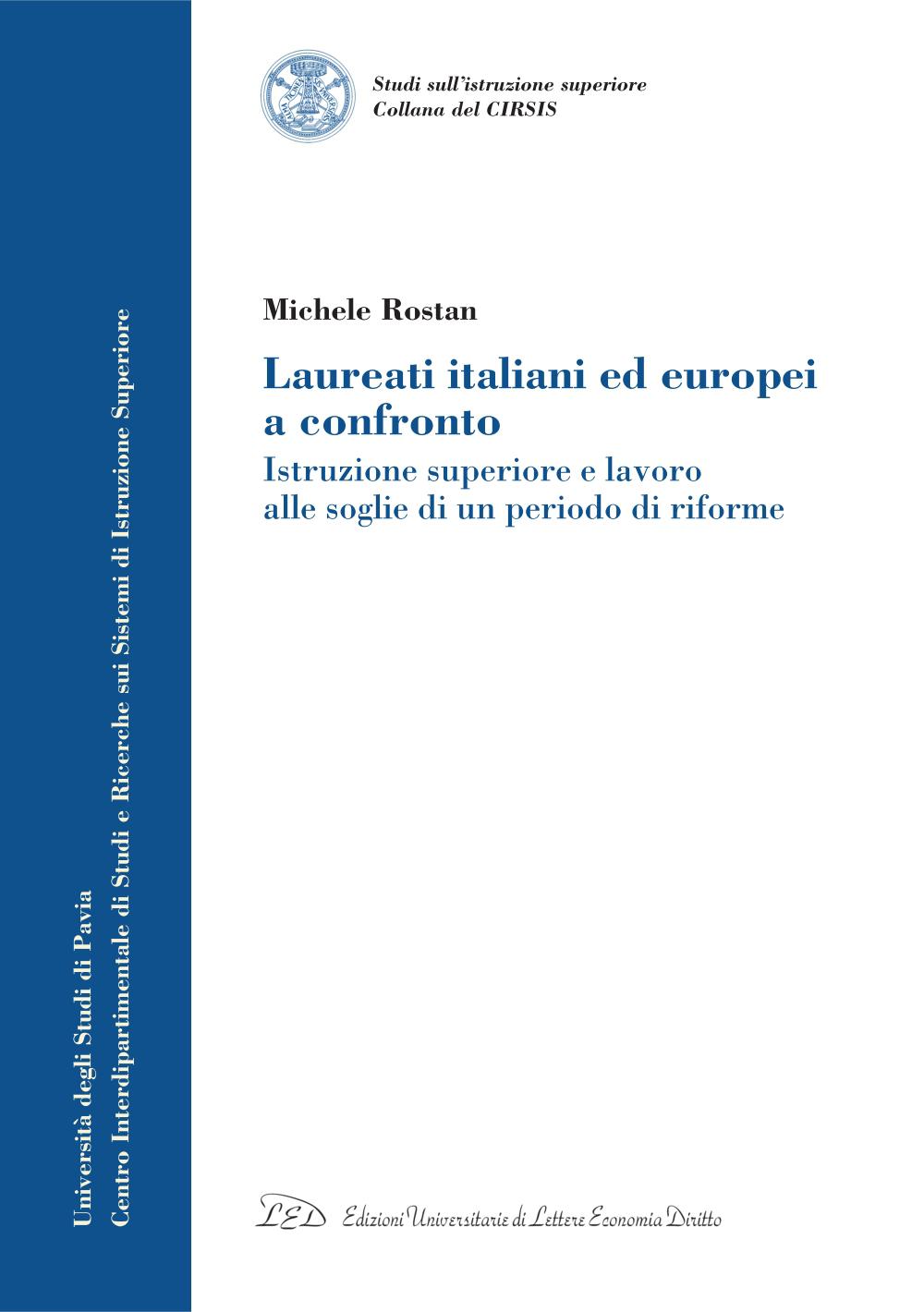Description
Negli ultimi dieci anni, due eventi hanno riportato all’attenzione dell’opinione pubblica, delle organizzazioni politiche e della comunità scientifica il rapporto tra istruzione superiore e mondo del lavoro: l’avvio di un processo di riforma dei sistemi di istruzione superiore dei paesi europei e la proposta all’Unione Europea di diventare l’economia basata sulla conoscenza più competitiva e più dinamica del mondo. Il Processo di Bologna e l’Agenda di Lisbona promuovono entrambi la modernizzazione dell’istruzione superiore, il miglioramento delle opportunità di occupazione dei laureati e un più stretto rapporto tra istruzione superiore e mondo del lavoro. Verranno raggiunti questi obiettivi a livello europeo? E nel nostro Paese? Per rispondere a queste domande è necessario disporre di un quadro di riferimento su scala europea relativo al periodo precedente l’avvio del Processo di Bologna. Solo così, nei prossimi anni, sarà possibile stabilire l’entità del cambiamento avvenuto e verificare il raggiungimento o meno degli obiettivi prefissati. A questa necessità rispondono i risultati dell’indagine Cheers – Careers after Higher Education: a European Research Study – realizzata tra il 1997 e il 2001. Grazie alla disponibilità dei dati Cheers, questo libro – ponendo a confronto i laureati italiani con quelli di altri paesi europei – evidenzia le somiglianze e le differenze esistenti tra sistemi di istruzione superiore, processi di transizione al lavoro, mercati del lavoro laureato, occupazione e lavoro dei laureati, dei paesi partecipanti all’indagine alla fine degli anni ’90. In questo modo, esso fornisce un termine di paragone per valutare – in un contesto europeo – la situazione e il cambiamento dell’istruzione superiore, dell’occupazione dei laureati e del rapporto tra istruzione superiore e mondo del lavoro in Italia.
In the last ten years, two events brought back to the attention of public opinion, political organisations and the scientific community the relationship between higher education and the world of work: the start of a reform process in European countries' higher education systems and the proposal to the European Union to become the most competitive and dynamic knowledge based economy in the world. Both the Bologna Process and the Lisbon Agenda foster the modernisation of higher education, the enhancement of graduates' employability and a closer relation between higher education and the world of work. Will these goals be met at the European level? And in Italy? In order to answer these questions a term of reference on a European scale referring to the period before the start of the Bologna Process is needed. Thanks to this term of reference, in the next years, it will be possible to assess the scope of the occurred change and the attainment of the mentioned goals. This term of reference is provided by the result of "Careers after Higher Education: a European Research Study" (CHEERS), a research project carried out between 1997 and 2001. Thanks to CHEERS data, this book - comparing Italian and European graduates - highlights existing similarities and differences among higher education systems, transition to work processes, graduate labour markets, graduates' employment and work, of participating countries at the end of the 90s. Doing so, the book allows to assess - in a European context - the condition and the change of higher education, graduate employment and the relation between higher education and the world of work in Italy.
Biographical notes
Michele Rostan è direttore del Centro Interdipartimentale di Studi e Ricerche sui Sistemi di Istruzione Superiore (CIRSIS) dell'Università degli Studi di Pavia dove insegna Sociologia del lo sviluppo presso la Facoltà di Scienze politiche.
Michele Rostan is the Director of the Centre for Study and Research on Higher Education Systems of the University of Pavia where he teaches Sociology of development.



